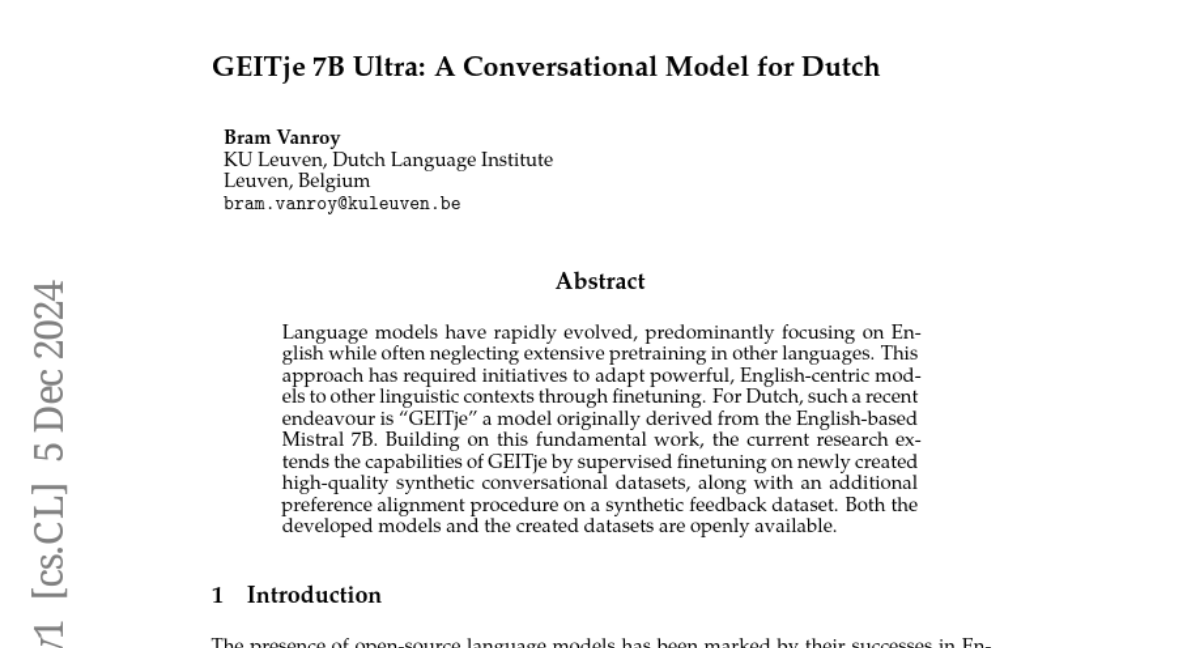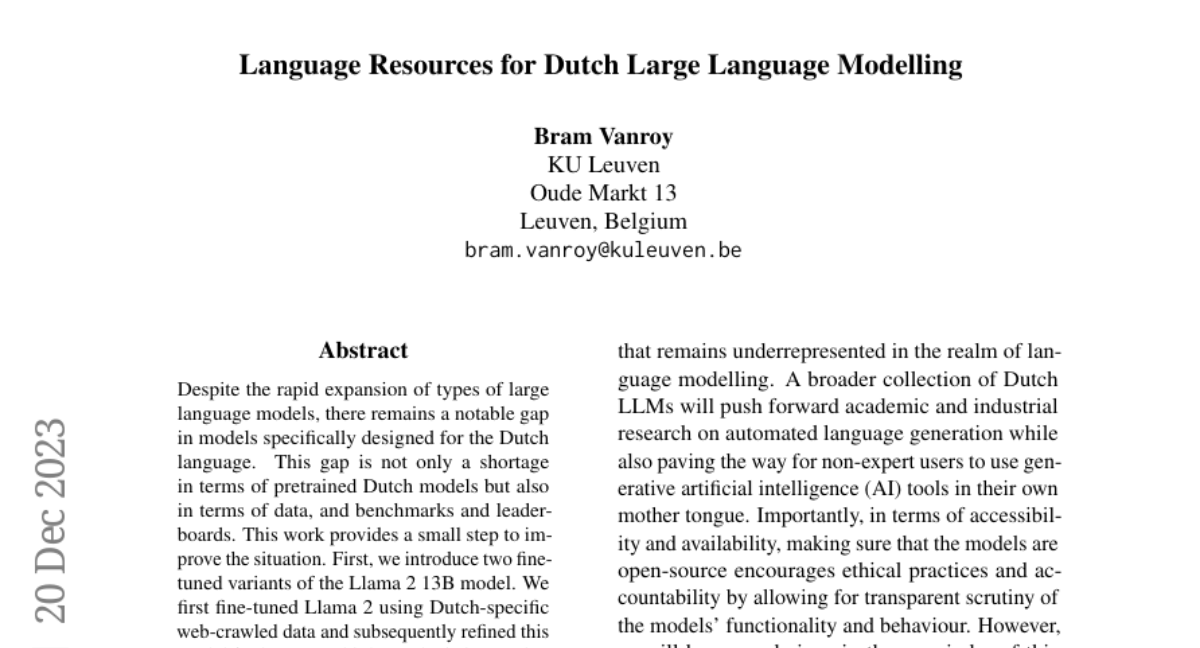Post
920
In the spirit of "Better late than never", I've finally written a brief overview paper for GEITje 7B Ultra. Initially released 10 months ago (oops), but still reaching around 1300 monthly downloads across the HF ecosystem (not including ollama).
GEITje 7B Ultra: A Conversational Model for Dutch (2412.04092)
While the paper discusses the model a little bit, I especially wanted to write about the datasets, which to this day seem an important asset for Dutch LLM training (SFT and preference tuning). We have a long way to go for Dutch, but publishing transparent and reproducible artefacts seems an important step to me, alongside having open discussions about data, bias, architectures.
In that spirit, thanks are in order for the creation of GEITje 7B Ultra and all related datasets:
- Michiel Buisman and UWV for providing the means to create the datasets
- Flemish Supercomputer Center (VSC) for the compute
- The Hugging Face Fellows and rest of the team for their discussions and insights
- The Dutch NLP community, notably @Rijgersberg for building the base GEITje model and the fruitful discussions we've had
More to come, step by step!
BramVanroy/geitje-7b-ultra-65c1ee010ad80fd1f6a8f208
GEITje 7B Ultra: A Conversational Model for Dutch (2412.04092)
While the paper discusses the model a little bit, I especially wanted to write about the datasets, which to this day seem an important asset for Dutch LLM training (SFT and preference tuning). We have a long way to go for Dutch, but publishing transparent and reproducible artefacts seems an important step to me, alongside having open discussions about data, bias, architectures.
In that spirit, thanks are in order for the creation of GEITje 7B Ultra and all related datasets:
- Michiel Buisman and UWV for providing the means to create the datasets
- Flemish Supercomputer Center (VSC) for the compute
- The Hugging Face Fellows and rest of the team for their discussions and insights
- The Dutch NLP community, notably @Rijgersberg for building the base GEITje model and the fruitful discussions we've had
More to come, step by step!
BramVanroy/geitje-7b-ultra-65c1ee010ad80fd1f6a8f208


